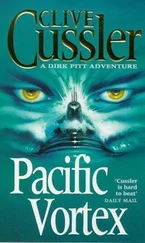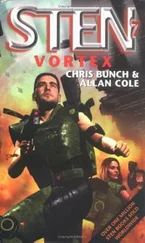CHAPTER 23
Afrikaner Nightmare
NOVEMBER 13-SADF HEADQUARTERS, PRETORIA, SOUTH AFRICA
Achieving surprise is the first goal of every military operation. Given ample warning, a well-prepared defending army can defeat an attacking force many times its own size. An alerted defender may have time to move units, call up reserves, or use other tactics to alter the odds in an upcoming battle.
Surprise prevents that. It guarantees an attacker the initiative, allowing him to set the pace of combat, forcing his victim to react-often in a predictable manner. But if a defender’s response is unpredictable, then the mantle of surprise-the initiative-may be transferred from one side to the other, and the cycle begins again.
Surprise also has one other effect. When a commander confronts an unexpected situation, he naturally takes more time to react because he has to discard all the preconceptions and prejudices that allowed him to be surprised in the first place. And if he delays too long, his enemy is able to attack a disorganized, leaderless force-presenting the luckless
4W
commander with yet another set of problems before he has even begun to solve the first.
The result is command paralysis, a sense of shock and helplessness that has lost many battles and many wars. The best commanders, the “great captains” of history, are those men who “keep their heads when all around are losing theirs. “
Newly promoted Kommandant Willem Metje hid a yawn as he watched staff officers plotting military movements on a large-scale map of Namibia.
Fluorescent lights and a lack of sleep were giving him a headache that not even a general, bubbling sense of triumph could completely dispel.
De Wet’s headquarters staff had been up since midnight, barraged by incomplete and contradictory reports of ANC guerrilla and Cuban commando raids in Namibia and all along South Africa’s northern border.
Several minor incidents near Pretoria-a grenade thrown at a police station and a few mysteriously downed power lines near Voortrekker
Heights-had prompted de Wet’s first positive order: an urgent call for more troops to guard the headquarters building and complex.
All in all, thought Metje crossly, it seemed a lot of effort for so insignificant a result.
But now at least things were finally moving in Namibia. Commanders on the front were reporting heavy air attacks, artillery bombardments, and ground assaults-all concentrated near the tiny town of Dordabis. And though South Africa’s forward battalions were expending massive amounts of ammunition, they were holding their ground with relative ease.
Castro’s vaunted offensive was failing.
Tall, whitehaired Adriaan de Wet moved closer and thumped Metje on the shoulder.
“Congratulations, Willem, the Cubans are doing exactly what you predicted.”
The younger man smiled back weakly and resisted the urge to rub his shoulder. Both his new rank insignia and his upset stomach seemed to settle a little in response to de Wet’s praise. And any qualms he might have had about orchestrating Colonel Heerden’s downfall vanished.
De Wet drew him forward to the edge of the map.
“So now we let our enemies ram their heads into our brick walls a little longer, eh?”
Metje nodded. The general always liked to see complete agreement from his subordinates.
De Wet leaned far out over the table.
“And when they are weak and reeling . then we strike, and strike hard!”
The other staff officers grouped nearby muttered their unreserved enthusiasm.
De Wet’s eyes shone with excitement as he pointed to a single unit counter positioned on the main highway leading to Windhoek.
“The Eighty-first
Armored should be able to punch through their lines in a matter of hours!
After the slaughter at Dordabis, the Cubans can’t have much left to stop our tanks!”
More nods. The 81st was a crack outfit. Its two armored and two mechanized battalions contained practically every Olifant main battle tank left in
South Africa’s inventory. And when it attacked, its tanks and APCs would be backed by the concentrated firepower of more than fifty G-5 and G-6 155mm guns. Cuba’s shattered forces shouldn’t stand a chance. The long, out-of-control war in Namibia might be over within weeks.
De Wet and his staff stood contemplating their upcoming counterattack, basking in the glow of anticipated victory.
KOMATIPOORT BORDER POST, IN THE CROCODILE RIVER VALLEY, WEST OF
MOZAMBIQUE
Late-spring days were always hot and humid in the wooded lowlands separating
South Africa from Mozambique. And though it had barely begun, this day promised more of the same.
A dense, damp haze already lingered motionless over citrus orchards, sugarcane fields, and the slow, eastward-rolling waters of the Crocodile
River. National Route 4, the main highway between Johannesburg and Maputo, stretched empty as far as the eye could see. High overhead, birds circled lazily through the still, warm air, their wings spread wide to generate every possible ounce of lift.
The only human activity seemed centered around a small wooden building adjacent to the highway and fifty meters back from a signpost marking the border. Shovels and pickaxes rose and fell together in a strange sort of rhythm as men in full combat gear dug foxholes and firing pits.
In a land as torn by violence as South Africa, border guards weren’t sleepy policemen checking for insects in contraband fruit. They were soldiers.
The commander of the Komatipoort Border Post, grayhaired Sgt. Uwe Boshof, laid his shovel aside and breathing heavily, plopped down on the edge of his shallow, hastily dug foxhole. Sweat stains soaked his short-sleeved khaki shirt-black patches of wetness spreading from under his armpits and across his broad back. The sergeant was a tall, big-boned man, and he carried a lot of meat on those bones. Too much, perhaps.
If so, he thought with weary amusement, he’d undoubtedly worked some of that excess weight off during the past several hours.
Boshof mopped his brow with a handkerchief and squinted east into the rising sun-an enormous orange-and-red orb flattened and distorted by the lowlying haze. Despite the clinging, sticky heat it was sure to bring, he was glad to see the day proper begin.
His night had been long on confusion and wild rumor and short on needed steep.
First, that idiot Private Krom had woken him up after hearing what he claimed were radio reports of some big guerrilla attack way up north along the Limpopo. When the story wasn’t repeated in the SABC’s next hourly broadcast, Boshof vaguely remembered going back to bed-but only after chewing Krom out for being a blithering, gutless moron.
He’d scarcely had time to drift off again before the first phone call came in-from the Army’s Eastern Transvaal Command, no less. Some staff flunkie wanting to know if they’d spotted any “unusual activity.” For a second, he’d been tempted to mention the pair of blesbok, or antelope,
he’d seen wander by earlier that evening. But only for a second. Staff officers had a notoriously poor sense of humor.
After that, he’d only been able to grab one fitful, restless hour of shut-eye before the kak, the shit, really started to hit the fan.
At two in the morning, reinforcements arrived-six more men dropped off from a truck making the rounds of every guard post along this stretch of the border. A hurried phone call to Battalion revealed only that both his captain and lieutenant were “unavailable.” They’d probably been comfortably asleep, he thought irritably.
His new men had been full of tales, though: blab bering all over creation about the whole base being put on alert, all leaves being canceled, and frantic quartermasters rushing around issuing field rations and a basic load of ammunition to every combat soldier. They were sure something big was happening.
Читать дальше












